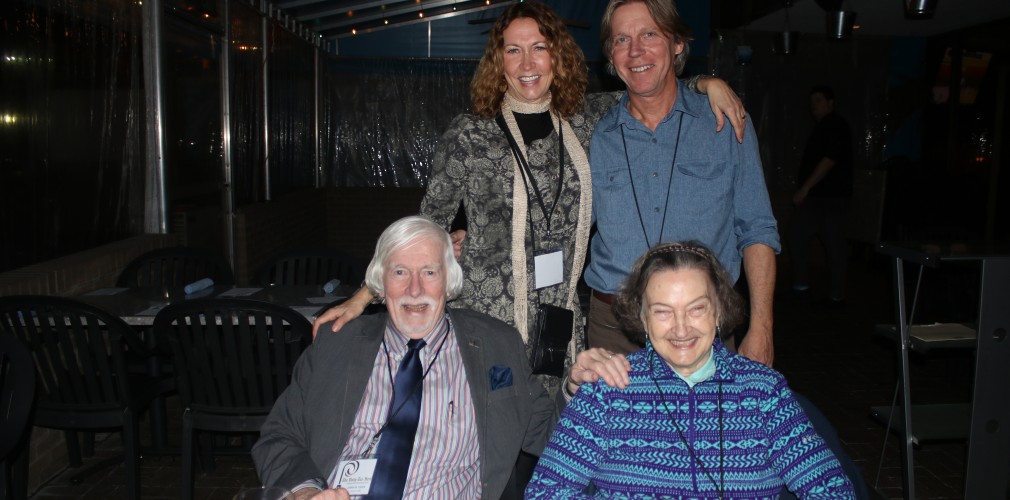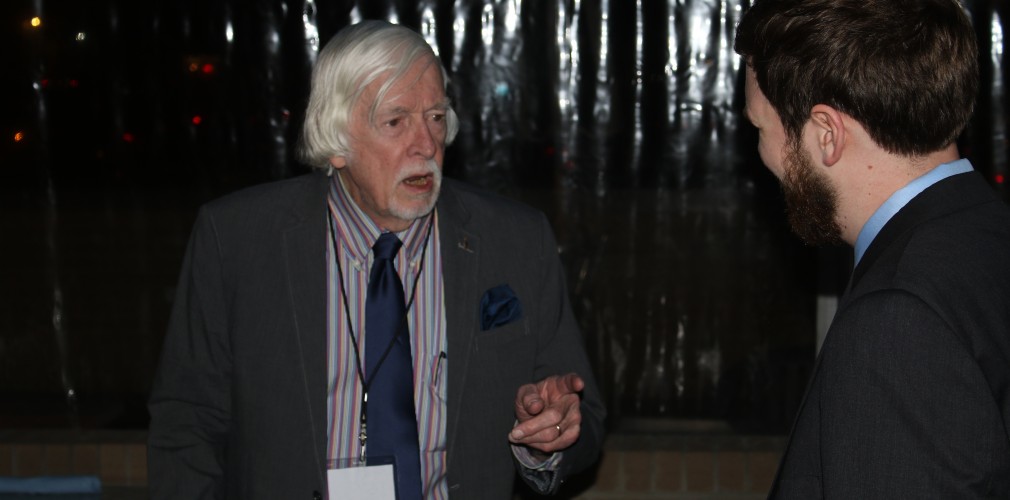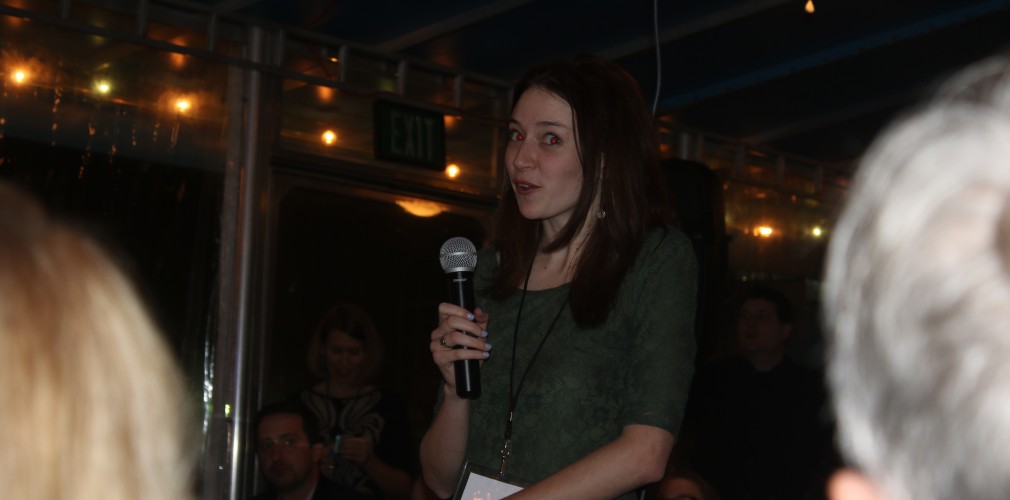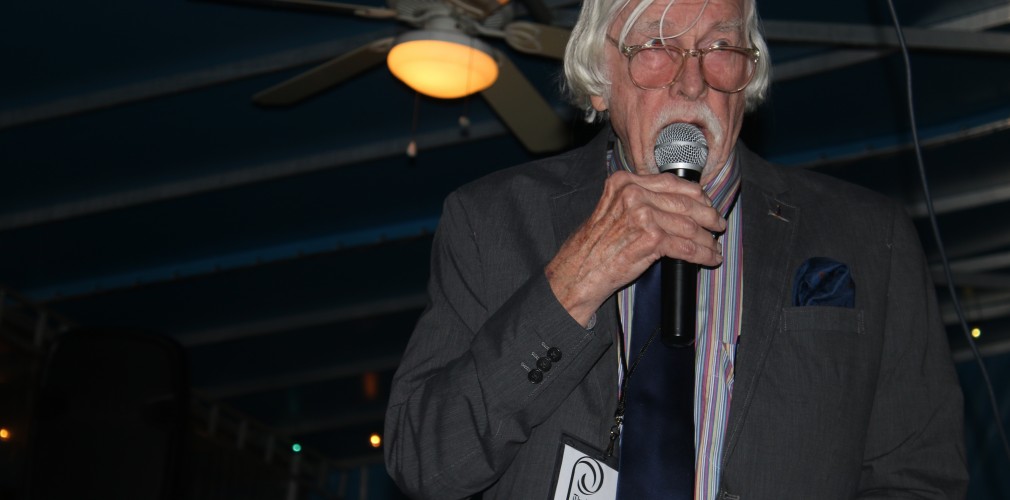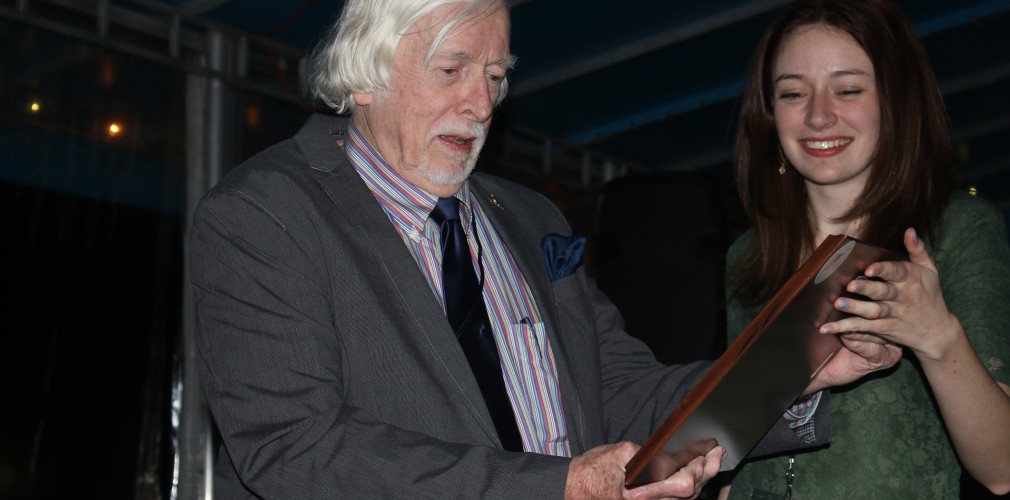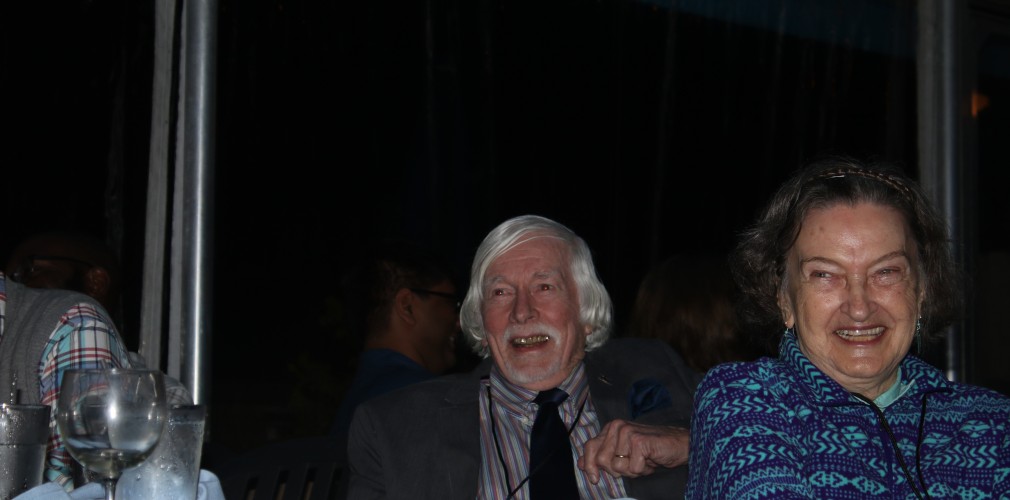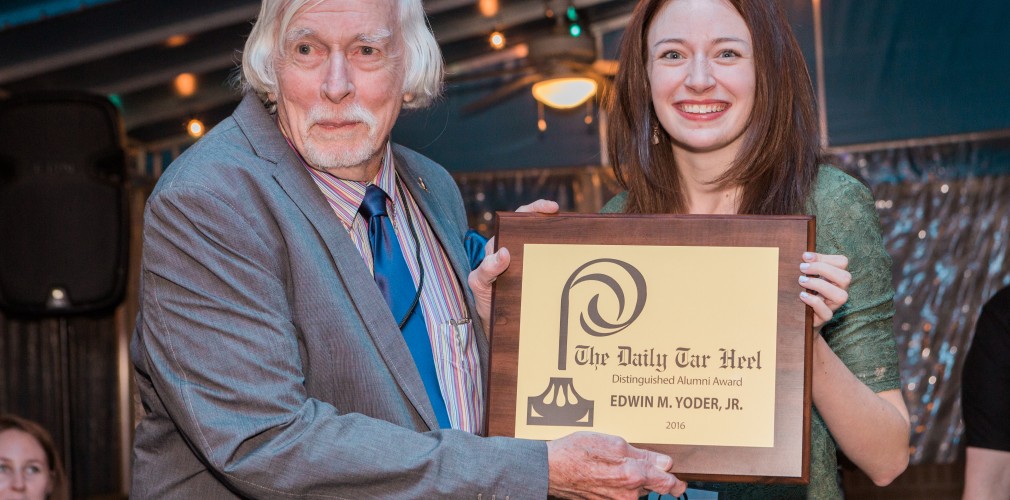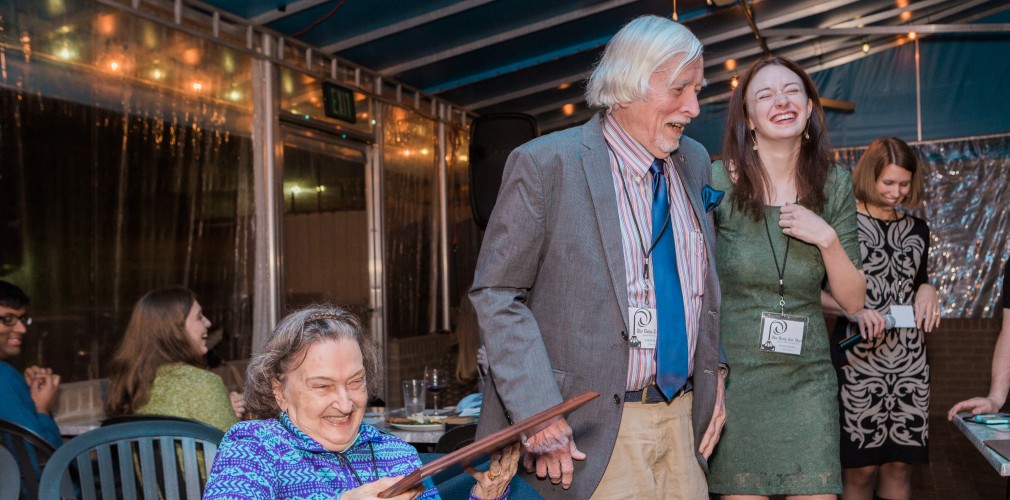The Alumni Association created the Distinguished Alumni Award in 2015 to honor graduates who served the DTH with distinction and then went on to rewarding and significant careers.
The first award was given to Distinguished Alumnus Edwin Yoder on Feb. 20, 2016.
Watch a video current DTH staffer Stephanie Lamm made for the presentation on the DTH website.
Here is the text of the speech Ed gave:
NOW AND THEN: A BRIEF REFLECTION
ED YODERIf these brief remarks have a theme it is Now and Then, or more precisely Now vs. Then. It will not shock you that a survivor from the 20th century is very conscious of change, some of it of questionable value.
When I entered UNC in the fall of 1952 the radio stations still called Chapel Hill a village and in the summer it became a ghost 1village. It was probably closer in scene and spirit to 1793 than to 2016. UNC was in effect a large liberal arts college, with some 4000 undergraduates, male by a ratio of 7:1. An NC high school graduate, if male and free of a prison record, with a C average and a pulse stood a good chance of admission. But 40 per cent flunked out by the second year and 60 per cent before graduation time. Everyone had a shot but many missed the bullseye. It was a wasteful but equitable system.
The curricular requirements, heavy on traditional arts and sciences, included two years of a foreign language, math, world history, English 21 (Chaucer, Milton and Shakespeare), and three sciences. And hygiene and swimming. My great predecessor and friend Charlie Kuralt did not get a diploma because he couldn’t pass swimming. No one, so far as I know, threatened him as a roommate of mine was threatened on his 4th try: “Katzenstein, you’re going to pass swimming this time if I have to attach a propeller to your ass.” So said the swimming coach, Ralph Casey. He passed — without the propeller. But Charlie Kuralt gained no UNC degree before he was given an honorary doctorate.
The DTH was staffed by an elected editor, almost invariably an English or history major, and a skeleton crew, working in the southwest upstairs corner of Graham Memorial. It had its advantages — we could look down on the Dean of Women’s fall reception of the new junior coeds, in their white gloves and high heels. Pranks were not unknown. The English club sent us a parody of a modern poem —
X
Clawhammers on the bathroom floor,
Enswathed in dripping towels.
accompanied by critical essays of many schools. One April Fool’s issue, Chuck Hauser was photographed inspecting the south end of a north-bound cow with a magnifying glass. We altered Chuck’s face to fit the bogus “story.” The headline said that Senator Joe McCarthy would investigate “big-time” athletics — more of him shortly.
TV was negligible, even more negligible than now. We had grown up up on radio — the NBC symphony, the Quiz Kids, the Kraft Radio Theater and the University of Chicago Roundtable. Radio was remarkably free of junk. Not even Public Television rivals it now. Eisenhower was president and the two major parties were on cordial speaking terms. There was one major disturbance: “McCarthyism,” named for the said US senator from Wisconsin, mentioned above, who gained notoriety by harassing and slandering so-called “leftists,” often people who had been a bit pink in the Depression-years ‘30s. An NC senator who later starred in the exposure of Nixon’s crimes, Sam Ervin Jr., helped rid the country of his influence. I take some satisfaction in recalling that my only participation in a march through Chapel Hill was in support of Ervin’s brilliant anti-McCarthy remarks on the Senate floor. As my mentor Prof. Philllips Russell observed, “McCarthy was finished when Sam Ervin hung a few mountain stories on him.” McCarthy and his ism were major editorial preoccupations of the DTH — as were other “national” matters. We liked to think of ourselves as pretty cosmopolitan.
In my comments on “Now” I shall try to avoid graybeard condescension. But I will be candid. I wish I saw more humor and scope on the UNC scene today and much less moralism. I also wish I saw you and your contemporaries reading newspapers and magazines instead of fixating on smart phones.
Thomas Jefferson once said that if he had to choose between a government without newspapers and newspapers without a government he would not “hesitate to choose the latter.” And he was not a fan of the often vicious journalism of his day. But newspapers also provided a forum for important discussion — notably in the form of the Federalist papers, which were published in the NY press and influenced the ratification of the Constitution by that state. They are classic discussions of political matters which, in their depth and sophistication, would be inconceivable today.
Today’s shriveled journalistic landscape is is yielding to the featherweight chatter of cable “news.” We have seen the future and, alas, it is the Drudge report, where mere hearsay and rumor pass as “news.” Twitter and Facebook offer a private world in which an item, by going “viral,” can claim tens of thousands, even millions, of “hits.” But the digital forum presents no collective space in which ideas and views clash visibly and are tested collectively. Rumor and demagoguery, as I needn’t tell you, are the poison pills of democracy and can be exposed only by collective discussion.
Mine is obviously a voice from the past, colored by more than a shade of nostalgia. But the collapse of the public dialogue into mendacity and vicious nonsense is disturbing. We witness it every day in the presidential primaries which are chiefly of interest to extremists and fanatics, right and left. You may not find it worth adult attention. But please bear in mind that it will produce a president with power to start “small” but endless wars that are not in the national interest and send young people of your age to risk their lives on distant shores. And often with the counsel of advisers who are historical ignoramuses. My generation was no better than most. But was schooled in scarcity and war and closer to the Age of Gutenberg and moveable type than yours. But you of the DTH, past and present, bear witness to a continuing faith in print, even if printing processes no longer depend on moveable type. The old words about the “dignity” of print remain applicable and it would be a stretch to use them of some of the current substitutes for it. It is a precious heritage and I hope you will take care of it.
Thank you again for this honor.
Stay tuned for information for the 2017 Winner.
